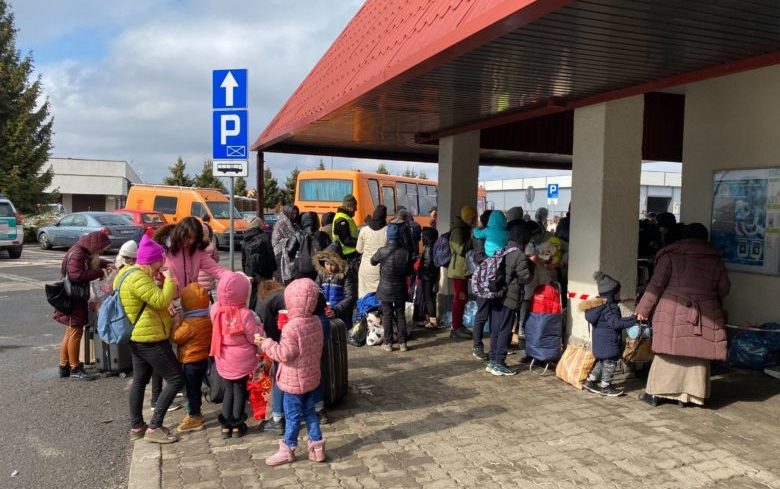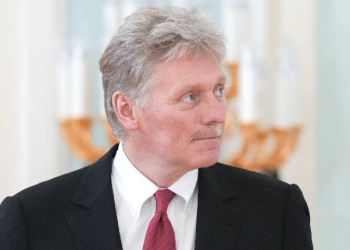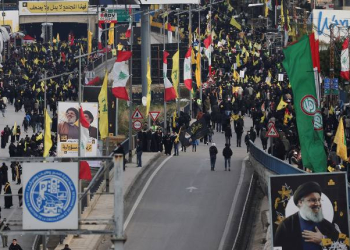New York: How can bots, which you can never miss whenever you log on to your bank website or check out a hotel, or those malicious tech world creatures Elon Musk keeps railing about, make a difference to the Ukraine war?
They can actually make serious difference, according to the Centre for Humanitarian Technology (CFHT), which has collaborated with the San Jose, California-based Automation Anywhere, Inc, to roll out the Telegram for Humanity customised software bot, or digital worker, to enable relief organisations automate humanitarian efforts for thousands of war-affected families across Ukraine.
It may sound grand, but it saves hundreds of hours of manual processing each week. Aid volunteers are thus freed to do more useful work.
Automation Anywhere is a global leader in robotic process automation co-founded by four Indian Americans — Mihir Shukla, the CEO, Neeti Mehta Shukla, his wife, who oversees the social impact activities of the privately-held company, Ankur Kothari, and Rushabh Parmani — in 2003. It is under Neeti Mehta Shukla’s watch that initiatives such as Telegram for Humanity are run.
The company, which has collaborated with Microsoft, Google, Amazon Web Services and Salesforce to advance “intelligent automation”, has just secured funding led by the Silicon Valley Bank to the tune of $200 million.
It is the third big infusion of capital into the company after a Series A round of $550 million in 2018 from General Atlantic, Goldman Sachs, NEA, World Innovation Lab, SoftBank Investment Advisers, and Workday Ventures, followed by a Series B round, in late 2019, led by Salesforce Ventures, which secured $290 million.
In Ukraine, meanwhile, the Telegram for Humanity bot is being employed by Step with Hope, a humanitarian organisation that provides aid to more than 8,000 families each week in combat zones and recently released territories in southern Ukraine.
What the bot does is automate thousands of manual requests for aid with increased speed and accuracy. The requests, as Neeti Mehta Shukla put it during a media interaction here, could range from everyday necessities such as diapers for babies to access to the services of psychologists, lawyers, and child welfare specialists for those in need.
Alla Semenchuk, Operations Director, CFHT. described the work of distributing the resources that refugees and internally displaced people require as “critical and tremendously challenging”. She noted that “the customised bot is both refugee-friendly and volunteer-friendly — it makes application processing quick and transparent, saving human effort and strengthening the organisation’s structure”.
CFHT, incidentally, to quote its own description of itself, “develops, deploys, and operates information and communication technology (ICT) to support scalable humanitarian emergency relief efforts”.
The purpose of bots is to mimic repetitive human tasks in a organisation and do so intelligently. For those who work for non-profit organisations, these free them up from spending hours filling up forms and other similar compliance-related chores — hours that they could spend with the people they want to serve on the ground.
For Neeti Mehta Shukla, who till describes Chennai as her home, this mean opening up another face of robotic process automation. “Technology is all about human enablement,” she said, and her vision of empowering humanitarian organisations digitally dovetails into the company’s pitch for an “automation economy”.
Automation Anywhere, in fact, is engaged also with the UK’s National Health Service (NHS), and in a one-of-its-kind experiment, a bot it developed “in just 24 hours” for the Northampton General Hospital reliably monitored the oxygen levels of Covid-19 patients with no human intervention, “freeing more than 1,500 hours for medical staff to spend on even more vital work”.
Elsewhere in China, Automation Anywhere and its partner, Netcraft, developed a bot-outfitted website visited by 50,000 citizens of Macau. The bot regularly gathers, organises and presents important Covid-19 information such as outbreak locations, mask availability or hospital wait times — “from multiple hard-to-find sources”.
(IANS)



















